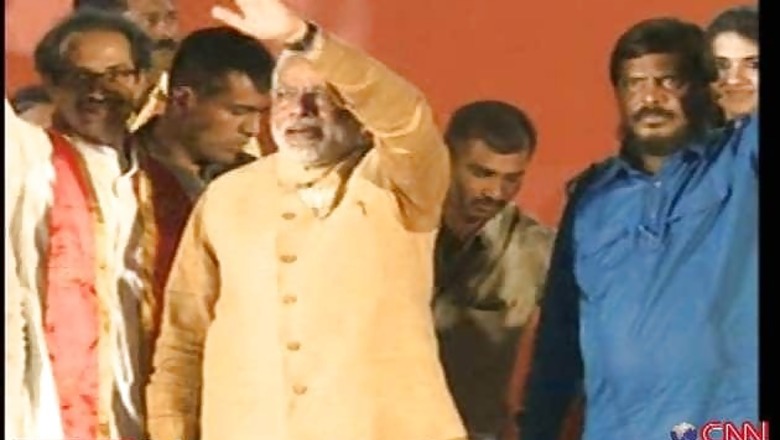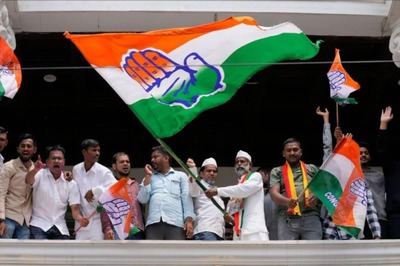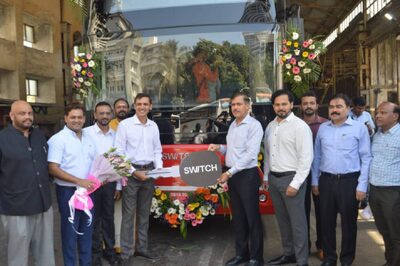
views
Mumbai: The state assembly elections in Maharashtra, which is scheduled for October 15, will be very crucial for the ruling Congress-NCP alliance. The recent victory of the BJP-Shiv Sena alliance, in which the combine swept 42 out of 48 Lok Sabha seats in the state. The recent parliamentary election result has come as a rude shock for the Congress and the NCP. The list of the Congress-NCP candidates will be finalised only after the return of Congress President Sonia Gandhi from abroad. It is expected that the list will be finalised within a couple of days. The NCP leader Sharad Pawar clarified that there was no dispute between the Congress-NCP combine.
In 2009 Assembly elections, the Congress and NCP won 82 seats and 62 seats respectively winning the state for the third time in a row. While the Congress fought in 174 seats, the NCP contested in 114 seats. In the recent parliamentary elections, the NCP won 4 seats and the Congress had to be contended with just 2 seats. On the basis of its performance in the parliamentary elections, the NCP is demanding 144 seats with its so called increased clout in the Zilla Parishad elections. Nevertheless, the Congress is adhering to its party's policy regarding the number of seats. However, both the alliance partners, who seems to be in a defensive mood have understood the grave situation and have agreed to arrive at a final solution in a day or two.
In the Congress camp, Chief Minister Prithviraj Chavan carries a favourable public image and has played a key role in taking some important decisions including the Maratha and Muslim reservations as part of the electioneering. However, the Congress is facing a major problem of anti-incumbency across the state. The resentment is mainly against the attitude of the NCP leaders. The NCP is facing several allegations related to irrigation scam, highway toll-tax issue and increasing load shedding of electricity in the rural areas. This adds to the worries of NCP President Sharad Pawar as many prominent leaders like Suryakantha Patil, former State Minister, Babanrao Pachpute, former president of state NCP Ajit Ghorpade, former state ministers have distanced themselves from the party. The alleged autocratic nature of Deputy Chief Minister Ajitdada Pawar, nephew of Pawar has also added to the woes of the NCP. It has led to more confrontations with its ally Congress.
On the other hand, the BJP won 46 seats out of 114 it contested whereas; Shiv Sena won 44 seats out of 169 contested seats it contested in the 2009 state assembly elections. In the backdrop of this spectacular victory in the Parliament elections and with the backup of 'Modi-impact', the BJP aspires to take over the 'progressive' state of Maharashtra along with Mumbai-the financial capital of the country. However, the Shiv Sena is reluctant to offer more seats to the BJP. The BJP has decided to contest in at least 150 seats in the state. The BJP-Shiv Sena alliance has now extended to four more regional parties like Swabhimani Sanghatana, Shivsangram, RPI (Athawale Group) & Rashtriya Samaj Paksha.
The late BJP leader Gopinath Munde had envisioned this alliance with a view to lure the OBC's and Dalits in an effort to counter the Maratha dominated party like the NCP. The BJP has its strong base in Vidarbha region, the home town of the BJP leader and Union minister Nitin Gadkari. The Shiv Sena enjoys a big support in Kokan, Mumbai and Marathwada regions. Gradually, Sena has expanded its area of influence to the Congress strongholds Western Maharashtra as well as North Maharashtra. On the other hand, the BJP has a strong backing of the so-called Narendra Modi wave, but lacks the cadre support like Shiv Sena. In addition to this, the tragic and untimely death of Gopinath Munde has also weakened its organisation structure. The BJP leaders want to capture the power this time. They know that they cannot end their 25 years old relationship with the BJP.
The Shiv Sena has been severely criticised by the BJP for its poor performance in the last assembly elections as well as in the recent parliamentary elections. Based on its not so good performance in last two elections, Shiv Sena is can't demand more seats in the coming elections. However, it is blaming the Raj Thackeray led Maharashtra Navnirman Sena (MNS) for the loss of 28 state Assembly seats by Shiv Sena in 2009. The breach of Shiv Sena's vote bank was felt in the regions of Mumbai, Pune, Thane and some other urban pockets. The position of the MNS seems to be very weak in the current elections.


















Comments
0 comment